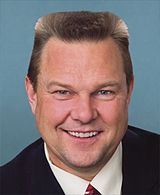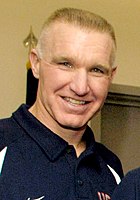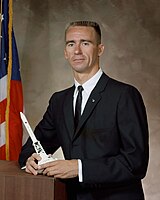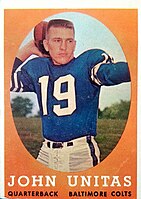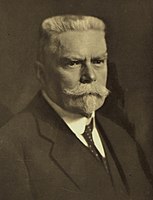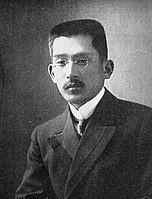Flattop: Difference between revisions
m Clarity Tags: Visual edit Mobile edit Mobile web edit Advanced mobile edit |
DocWatson42 (talk | contribs) Cleaned up references and other matters. |
||
| (65 intermediate revisions by 20 users not shown) | |||
| Line 1: | Line 1: | ||
{{Short description|Hairstyle}} |
{{Short description|Hairstyle}} |
||
{{ |
{{Other uses|Flat Top (disambiguation)}} |
||
[[File: |
[[File:Gary Thompson.jpg|thumb|233x233px|American basketball player [[Gary Thompson (basketball player)|Gary Thompson]] sporting a flattop haircut, c. 1958]] |
||
A flattop is a classic [[hairstyle]] characterized by short hair on the sides and back of the head, with the top hair cut short and styled to stand upright in a flat, level plane. |
|||
| ⚫ | |||
== Styling == |
== Styling == |
||
In the most classic style of flattop for men and boys, the hair on top of the head is styled upright and cut flat from front to back before rounding over the crown at the back of the head. The shortest hair on top, which is at the highest point on the head, is cut to about a quarter of an inch long, resulting in hair at the front being about 3/4 to 1-1/4 inches, depending on the roundness of the head. The back and sides are cut to about a quarter of an inch (usually the same length or slightly shorter than the length of the shortest hair on top) and tapered into the upright hair. The ears are cleanly outlined and the sideburns are squared just above the orifice of the ear. The neckline is cut with a low taper. |
|||
| ⚫ | When a flattop is viewed from the front, varying degrees of squarish appearance are achieved by the design of the upper sides as they |
||
| ⚫ | Other versions popular in [[Counterculture|counter-culture]] are left longer on the top and often taper upwards from crown to a length of two to three inches in the front, or with a modified back and sides which are alternatively left long or shaved to the skin. A variant form known by names including "flattop with fenders" and "flat top boogie" has long sides known as fenders. Another version, often worn by soldiers in the U.S. military, shaves the hair to the skin from the highest point on the back of the crown all the way down the back and sides with lather and razor, leaving only enough hair on top for the shortest of flattops, resulting in the hair on top resembling a horseshoe shape on top. This is known as a "horseshoe flattop" or "shoe". Regardless of the form, the flattop is usually cut with electric clippers, using both the clipper-over-comb and freehand techniques on the top and detachable blades on the back and sides.{{sfn|Thorpe|1967|pp=133–134}}{{sfn|Trusty|1971|pp=110–111}}<ref name="Eox">{{cite magazine |url= http://www.time.com/time/magazine/article/0,9171,894170,00.html|archive-url= https://web.archive.org/web/20080915225013/http://www.time.com/time/magazine/article/0,9171,894170,00.html|url-status= dead|archive-date= September 15, 2008|title= MANNERS & MORALS: Teen-Age Moderation |magazine=[[Time (magazine)|Time]] |date=16 February 1959}}</ref><ref name="Eoj">{{citation |url=https://books.google.com/books?id=9Z6vCGbf66YC&pg=PA101 |title=Encyclopedia of hair |author=Victoria Sherrow |isbn=9780313331459 |year=2006|publisher=Bloomsbury Academic }}</ref> |
||
A flattop might be graduated in length on the top of the head from approximately one inch at the front hairline to about a quarter inch at the crown to a half inch as it starts curving down the back of the head. A classic flattop for men and boys in the 1950s and 1960s typically cut the back and sides to a quarter of an inch in length with sideburns cut square at the hole of the ear and a low taper at the neckline.<ref name=Eok>{{citation |url= https://books.google.com/books?id=wfUIHchKA94C&pg=PA42|title= The Flat Top |journal=Boys' Life|date=August 1961}}</ref> A variant form known by several names including flattop with fenders and flat top boogie has long sides known as fenders with or without a [[Duck's ass|ducktail]].{{sfn|Trusty|1971|pp=111–112}}<ref name=Eoz>{{citation |url= https://books.google.com/books?id=nliVPS8HNxwC&pg=PA43|title= The Flat Top Boogie |journal=Boys' Life|date=July 1961}}</ref> |
|||
Flattops are typically groomed with wax pomade (known as butch wax in the 1950s), hair spray, mousse |
Flattops are typically groomed with [[Pomade|wax pomade]] (known as butch wax in the 1950s<ref>{{Cite web |last=Jenkins |first=Tim |date=2017-04-20 |title=Butch Wax |url=https://sabrbaseballcards.blog/2017/04/19/butch-wax/ |access-date=2024-02-16 |publisher=SABR's Baseball Cards Research Committee |language=en}}</ref>), [[hair spray]], [[mousse]], [[Hair gel|gel]], or cream—depending upon hair texture and the preference of the wearer regarding stiffness and shine of the upright hair. Some with especially coarse hair textures do not require product to maintain their hold, though most must style their flattop with a blow dryer and styling product of choice. Since the hair is cut very short and quickly grows out of its precise shape, maintenance haircuts are required at every two to three weeks, and some flattop wearers visit their [[barber]] weekly—and often on Fridays, resulting in a phenomenon barbers call "Flattop Friday".<ref>{{Cite web |title=Simon Foxen Barber Shop - 'It's Flattop Friday!' every Friday is Flattop Friday, The Simon Foxen Barber Shop signature haircut. Come try one, coolest cut around. |url=https://simonfoxenbarbershop.nearcut.com/gallery/OQNDRJ |access-date=2024-02-16 |website=Simon Foxen Barber Shop |language=en}}</ref><ref>{{Cite web |title=barbergreg |url=https://www.instagram.com/barbergreg/reel/Cy7DHuTtZti/ |publisher=Instagram |access-date=2024-02-16}}</ref> |
||
| ⚫ | When a flattop haircut is viewed from the front, varying degrees of squarish appearance are achieved by the design of the upper sides as they connect to the flat deck.{{sfn|Thorpe|1967|p=134}}{{sfn|Trusty|1971|p=110}} Possibilities are somewhat limited by skull shape, density of the hair, and diameter of the individual shafts of hair, but may include: boxy upper sides with rounded corners; boxy upper sides with sharp corners; rounded upper sides with rounded corners; and rounded upper sides with sharp corners.{{sfn|Thorpe|1967|p=134}} Natural skull shape and certain deck inclinations and heights often leave an area at the center top of the head where the scalp is visible through the hair. This area is called a "landing strip", a metaphor for the landing strip on the deck of a flattop (aircraft carrier). Some flattops are designed to cause a landing strip to show to varying degrees.{{sfn|Trusty|1971|p=110}} Whether or not the wearer wishes to have a landing strip is a typical discussion point when getting a flattop. While most all of a flattop is cut with clippers, master barbers with an attention to detail use shears at the end of the haircut to confirm that no stray hairs remain on top, which is known as giving the patron a “scissor salute”. |
||
The flattop has maintained a contingent of dedicated wearers since it was introduced. It was very popular in the 1950s, but faded in popularity with the emergence of longer hair styles in the late 1960s and 1970s. It had a brief reappearance in the 1980s and early 1990s, before dropping off again. |
|||
The flattop was popular in the early and mid 20th century, see photos below, and maintains a contingent of dedicated wearers today. It is considered a classic, short male hairstyle. |
|||
| ⚫ | |||
| ⚫ | |||
| ⚫ | |||
File:JohnnyUnitasSignAutograph1964.jpg| [[Johnny Unitas]], who wore a flattop during much of his NFL career |
|||
File:Howie Long 2015 (cropped).jpg|Football player and analyst [[Howie Long]], c. 2015 |
|||
| ⚫ | |||
File:Jon Tester 113th Congress.jpg|US Senator [[Jon Tester|John Tester]], c. 2013 |
|||
File:gene kranz2.jpg|[[Flight controller|Flight director]] [[Gene Kranz]] wore a flattop ever since the early Apollo missions. |
|||
File:Chris Mullin.jpg|Basketball player [[Chris Mullin]], c. 2006 |
|||
File:Hurley Douglas.jpg|NASA astronaut [[Doug Hurley|Douglas G. Hurley]], c. 2000 |
|||
| ⚫ | |||
File:1958 topps johnny unitas.jpg|Football player [[Johnny Unitas]], c. 1958 |
|||
File:Karel Kramář 1920s.jpg|Former Prime Minister of Czechoslovakia, [[Karel Kramář]], c. 1920 |
|||
| ⚫ | |||
File:Atsumaro Yabu.jpg|[[Atsumaro Yabu]], c. 1913 |
|||
File:Pierre Curie by Dujardin c1906 (cropped2).jpg|French physicist [[Pierre Curie]], c. 1906 |
|||
File:Gene Kranz portrait.jpg|[[NASA]] Chief Flight Director [[Gene Kranz]], c. 2007 |
|||
</gallery> |
</gallery> |
||
==Haircutting methods== |
==Haircutting methods== |
||
[[File:Maris Kennedy.gif|thumb|right| Left: [[Roger Maris]], flattop. Right: U.S. President [[John F. Kennedy]], [[Ivy League (haircut)|Ivy League]] |
[[File:Maris Kennedy.gif|thumb|right| Left: [[Roger Maris]], flattop. Right: U.S. President [[John F. Kennedy]], [[Ivy League (haircut)|Ivy League]]–type haircut]] |
||
The |
The hair on the lower two-thirds of the sides and back of the head are cut using the direct contact clipper method, with a 1/4 inch or shorter attached guard or detachable blade. Care must be taken to "box in" the flattop using the clipper-over-comb method on the upper third of the sides rather than contour it to the head. This is accomplished by holding a vertically-oriented [[comb]] directly to the side of the head and running the clippers upwards on the comb. On the back, the hair is typically more contoured to the crown. The top hair is typically cut with [[electric clippers|clippers]] utilizing the clipper-over-comb technique, though it can also be cut shears-over-comb. When the top hair is well-styled, often referred to by barbers as "trained", the top can be cut freehand with a clipper to best adjust the shape of the flattened top to the shape of the head or preference of the wearer.{{sfn|Thorpe|1967|p=133}}{{sfn|Trusty|1971|pp=110–112}} Some barbers utilize a large 4-inch wide comb designed for cutting flattops, while others use wide rotary clipper blades specifically designed for freehand cutting the top of a flattop.{{sfn|Trusty|1971|p=111}} However, for master barbers, these specialized tools are normally not required or used. |
||
When cutting a new flattop or when cutting a flattop with full boxy or boxy rounded upper sides or a flattop with fenders, the hair at the upper sides and top has to be boxed in. If the hair on the upper sides is initially contoured, it may not be possible to achieve a squarish effect.{{sfn|Trusty|1971|p=110}} The hair at the crown is cut from about one quarter to one half inch while the barber stands behind the patron. He then positions himself in front and cuts the top hair to about two inches in length and then to the desired height across the top from side to side while progressing back to the shorter hair at the crown. |
|||
The exact lengths are dependent on skull shape and the style of flat top.{{sfn|Thorpe|1967|p=133}} Intricate cutting of the deck and upper sides follows to achieve a specific inclination and squarish effect. Natural skull shape and certain deck inclinations and heights often leave an area at the center top of the head where the scalp is visible through the hair. This area is called a "landing strip", a metaphor for the landing strip on the deck of a flattop (aircraft carrier). Some flattops are designed to cause a landing strip to show to varying degrees.{{sfn|Trusty|1971|p=110}} |
|||
==See also== |
==See also== |
||
*[[Butch cut]] |
* [[Butch cut]] |
||
*[[Buzz cut]] |
* [[Buzz cut]] |
||
*[[Crew cut]] |
* [[Crew cut]] |
||
*[[Hi-top fade]] |
* [[Hi-top fade]] |
||
*[[Ivy League (haircut)|Ivy League]] |
* [[Ivy League (haircut)|Ivy League]] |
||
* [[List of hairstyles]] |
|||
== |
== Citations == |
||
{{Reflist}} |
{{Reflist}} |
||
== General and cited references == |
|||
== Bibliography == |
|||
* {{ |
* {{Cite book|last=Thorpe|first=S.C.|year=1967|title=Practice and Science of Standard Barbering|publisher=Milady Publishing Corporation}} |
||
* {{ |
* {{Cite book|last=Trusty|first=L. Sherman|year=1971|title=The Art and Science of Barbering|publisher=Wolfer Printing Co.}} |
||
==External links== |
==External links== |
||
{{Commons category}} |
|||
| ⚫ | |||
*[http://www.pathguy.com/flattop.htm Information on flattops and list of famous flattop wearers] |
* [http://www.pathguy.com/flattop.htm Information on flattops and list of famous flattop wearers] |
||
*[http://www.flattops.info Online community for flattop haircuts with barber shop recommendations] |
* [http://www.flattops.info Online community for flattop haircuts with barber shop recommendations] |
||
| ⚫ | |||
*[http://www.gstatic.com/hostedimg/ |
* [http://www.gstatic.com/hostedimg/46f88d11c448c453_large Flattop, boxy, rounded corners] |
||
*[http://www.gstatic.com/hostedimg/ |
* [http://www.gstatic.com/hostedimg/a852e31ad42e1d1a_large Flattop, boxy, sharp corners, landing strip showing] |
||
*[http://www.gstatic.com/hostedimg/ |
* [http://www.gstatic.com/hostedimg/304fa5e8cca3631a_large Flattop, rounded, rounded corners] |
||
| ⚫ | |||
*[https://web.archive.org/web/20100212204701/http://www.essortment.com/all/howtogiveaha_rcav.htm How to give a flat top haircut] |
* [https://web.archive.org/web/20100212204701/http://www.essortment.com/all/howtogiveaha_rcav.htm How to give a flat top haircut] |
||
*[https://books.google.com/books?id=vkEEAAAAMBAJ |
* [https://books.google.com/books?id=vkEEAAAAMBAJ&pg=PA149 "How To Square Flattop Hair"]—''[[Life (magazine)|Life]]'', November 12, 1956. Includes photos. |
||
| ⚫ | |||
{{Human hair}} |
{{Human hair}} |
||
| ⚫ | |||
[[Category:1940s fashion]] |
[[Category:1940s fashion]] |
||
[[Category:1950s fashion]] |
[[Category:1950s fashion]] |
||
| Line 67: | Line 72: | ||
[[Category:2000s fashion]] |
[[Category:2000s fashion]] |
||
[[Category:2010s fashion]] |
[[Category:2010s fashion]] |
||
| ⚫ | |||
[[ko:스포츠 머리]] |
|||
[[fr:Brosse (coiffure)]] |
[[fr:Brosse (coiffure)]] |
||
[[it:Taglio militare]] |
[[it:Taglio militare]] |
||
Latest revision as of 06:55, 25 November 2024

A flattop is a classic hairstyle characterized by short hair on the sides and back of the head, with the top hair cut short and styled to stand upright in a flat, level plane.
Styling
[edit]In the most classic style of flattop for men and boys, the hair on top of the head is styled upright and cut flat from front to back before rounding over the crown at the back of the head. The shortest hair on top, which is at the highest point on the head, is cut to about a quarter of an inch long, resulting in hair at the front being about 3/4 to 1-1/4 inches, depending on the roundness of the head. The back and sides are cut to about a quarter of an inch (usually the same length or slightly shorter than the length of the shortest hair on top) and tapered into the upright hair. The ears are cleanly outlined and the sideburns are squared just above the orifice of the ear. The neckline is cut with a low taper.
Other versions popular in counter-culture are left longer on the top and often taper upwards from crown to a length of two to three inches in the front, or with a modified back and sides which are alternatively left long or shaved to the skin. A variant form known by names including "flattop with fenders" and "flat top boogie" has long sides known as fenders. Another version, often worn by soldiers in the U.S. military, shaves the hair to the skin from the highest point on the back of the crown all the way down the back and sides with lather and razor, leaving only enough hair on top for the shortest of flattops, resulting in the hair on top resembling a horseshoe shape on top. This is known as a "horseshoe flattop" or "shoe". Regardless of the form, the flattop is usually cut with electric clippers, using both the clipper-over-comb and freehand techniques on the top and detachable blades on the back and sides.[1][2][3][4]
Flattops are typically groomed with wax pomade (known as butch wax in the 1950s[5]), hair spray, mousse, gel, or cream—depending upon hair texture and the preference of the wearer regarding stiffness and shine of the upright hair. Some with especially coarse hair textures do not require product to maintain their hold, though most must style their flattop with a blow dryer and styling product of choice. Since the hair is cut very short and quickly grows out of its precise shape, maintenance haircuts are required at every two to three weeks, and some flattop wearers visit their barber weekly—and often on Fridays, resulting in a phenomenon barbers call "Flattop Friday".[6][7]
When a flattop haircut is viewed from the front, varying degrees of squarish appearance are achieved by the design of the upper sides as they connect to the flat deck.[8][9] Possibilities are somewhat limited by skull shape, density of the hair, and diameter of the individual shafts of hair, but may include: boxy upper sides with rounded corners; boxy upper sides with sharp corners; rounded upper sides with rounded corners; and rounded upper sides with sharp corners.[8] Natural skull shape and certain deck inclinations and heights often leave an area at the center top of the head where the scalp is visible through the hair. This area is called a "landing strip", a metaphor for the landing strip on the deck of a flattop (aircraft carrier). Some flattops are designed to cause a landing strip to show to varying degrees.[9] Whether or not the wearer wishes to have a landing strip is a typical discussion point when getting a flattop. While most all of a flattop is cut with clippers, master barbers with an attention to detail use shears at the end of the haircut to confirm that no stray hairs remain on top, which is known as giving the patron a “scissor salute”.
The flattop was popular in the early and mid 20th century, see photos below, and maintains a contingent of dedicated wearers today. It is considered a classic, short male hairstyle.
-
Football player and analyst Howie Long, c. 2015
-
US Senator John Tester, c. 2013
-
Basketball player Chris Mullin, c. 2006
-
NASA astronaut Douglas G. Hurley, c. 2000
-
NASA astronaut Walter Cunningham, c. 1964
-
Football player Johnny Unitas, c. 1958
-
Former Prime Minister of Czechoslovakia, Karel Kramář, c. 1920
-
German general Paul von Hindenburg, c. 1914
-
Atsumaro Yabu, c. 1913
-
French physicist Pierre Curie, c. 1906
-
NASA Chief Flight Director Gene Kranz, c. 2007
Haircutting methods
[edit]
The hair on the lower two-thirds of the sides and back of the head are cut using the direct contact clipper method, with a 1/4 inch or shorter attached guard or detachable blade. Care must be taken to "box in" the flattop using the clipper-over-comb method on the upper third of the sides rather than contour it to the head. This is accomplished by holding a vertically-oriented comb directly to the side of the head and running the clippers upwards on the comb. On the back, the hair is typically more contoured to the crown. The top hair is typically cut with clippers utilizing the clipper-over-comb technique, though it can also be cut shears-over-comb. When the top hair is well-styled, often referred to by barbers as "trained", the top can be cut freehand with a clipper to best adjust the shape of the flattened top to the shape of the head or preference of the wearer.[10][11] Some barbers utilize a large 4-inch wide comb designed for cutting flattops, while others use wide rotary clipper blades specifically designed for freehand cutting the top of a flattop.[12] However, for master barbers, these specialized tools are normally not required or used.
See also
[edit]Citations
[edit]- ^ Thorpe 1967, pp. 133–134.
- ^ Trusty 1971, pp. 110–111.
- ^ "MANNERS & MORALS: Teen-Age Moderation". Time. 16 February 1959. Archived from the original on September 15, 2008.
- ^ Victoria Sherrow (2006), Encyclopedia of hair, Bloomsbury Academic, ISBN 9780313331459
- ^ Jenkins, Tim (2017-04-20). "Butch Wax". SABR's Baseball Cards Research Committee. Retrieved 2024-02-16.
- ^ "Simon Foxen Barber Shop - 'It's Flattop Friday!' every Friday is Flattop Friday, The Simon Foxen Barber Shop signature haircut. Come try one, coolest cut around". Simon Foxen Barber Shop. Retrieved 2024-02-16.
- ^ "barbergreg". Instagram. Retrieved 2024-02-16.
- ^ a b Thorpe 1967, p. 134.
- ^ a b Trusty 1971, p. 110.
- ^ Thorpe 1967, p. 133.
- ^ Trusty 1971, pp. 110–112.
- ^ Trusty 1971, p. 111.
General and cited references
[edit]- Thorpe, S.C. (1967). Practice and Science of Standard Barbering. Milady Publishing Corporation.
- Trusty, L. Sherman (1971). The Art and Science of Barbering. Wolfer Printing Co.
External links
[edit]- Information on flattops and list of famous flattop wearers
- Online community for flattop haircuts with barber shop recommendations
- Flattop, boxy, rounded corners
- Flattop, boxy, sharp corners, landing strip showing
- Flattop, rounded, rounded corners
- Flattop, rounded, sharp corners, landing strip showing
- How to give a flat top haircut
- "How To Square Flattop Hair"—Life, November 12, 1956. Includes photos.


